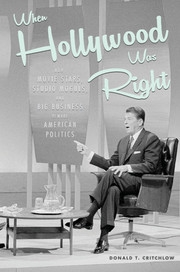Introduction
Published online by Cambridge University Press: 05 October 2013
Summary
When the Academy of Motion Picture Arts and Sciences announced that film director Elia Kazan would receive an honorary Oscar at the January 1999 ceremony, the Hollywood Left erupted in anger. Hollywood leftists could not believe that the Academy was going to recognize Kazan’s achievement. Everyone knew that Kazan was one of the witnesses who appeared before the House Un-American Activities Committee (HUAC) in 1952 to “name names” of communists. Kazan, the squealer, the opportunist, the careerist, and a moral coward was now getting artistic recognition for “his work.” What about his other work, his work before HUAC that had destroyed lives and encouraged others to testify? So what if he had won two Academy Awards for Best Director for Gentleman’s Agreement (1947) and On the Waterfront (1954)? He broke, recanting his communist past and gave names to Congress of past communist associates.
Actor Karl Malden, winner of an Oscar for his performance in Kazan’s A Streetcar Named Desire (1951), pushed for the award. Malden believed that Kazan deserved to be in the company of people like Cary Grant, Alfred Hitchcock, and Howard Hawkes, who had won previous honorary Oscars for their life’s work. Malden first proposed Kazan for the award in 1989. In the ensuing decade, Kazan was denied lifetime achievement awards from the San Francisco Film Festival and the Los Angeles Film Critics. Malden’s persistence paid off. After much debate, the Motion Picture Academy agreed with Malden that Kazan deserved an honorary Oscar.
Information
- Type
- Chapter
- Information
- When Hollywood Was RightHow Movie Stars, Studio Moguls, and Big Business Remade American Politics, pp. 1 - 6Publisher: Cambridge University PressPrint publication year: 2013
Accessibility standard: Unknown
Why this information is here
This section outlines the accessibility features of this content - including support for screen readers, full keyboard navigation and high-contrast display options. This may not be relevant for you.Accessibility Information
- 5
- Cited by
